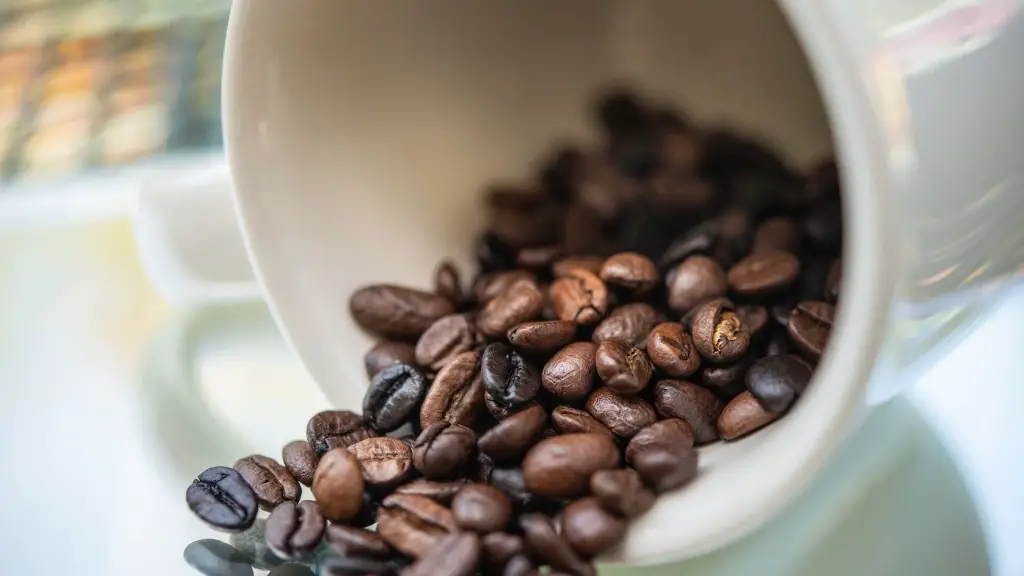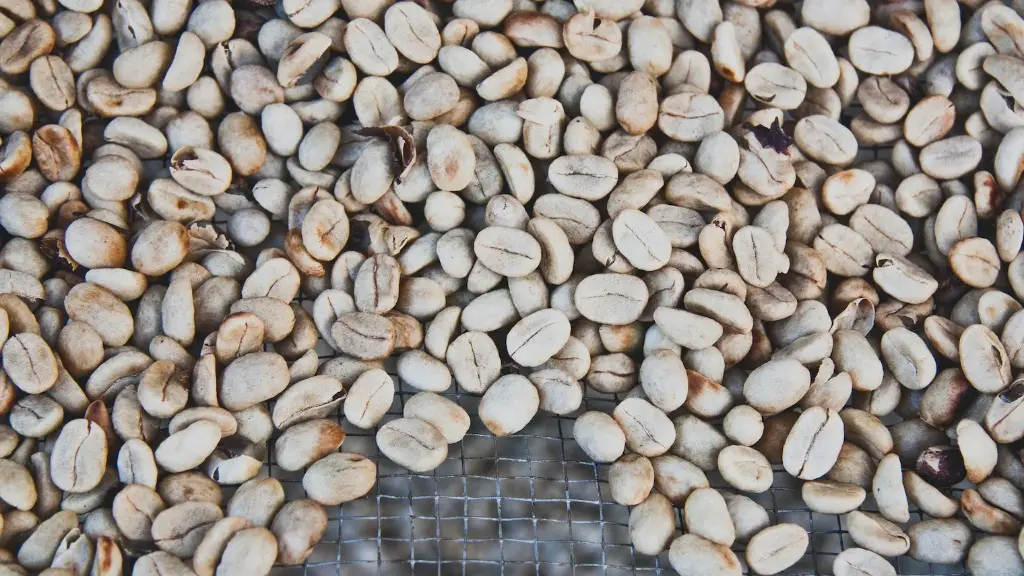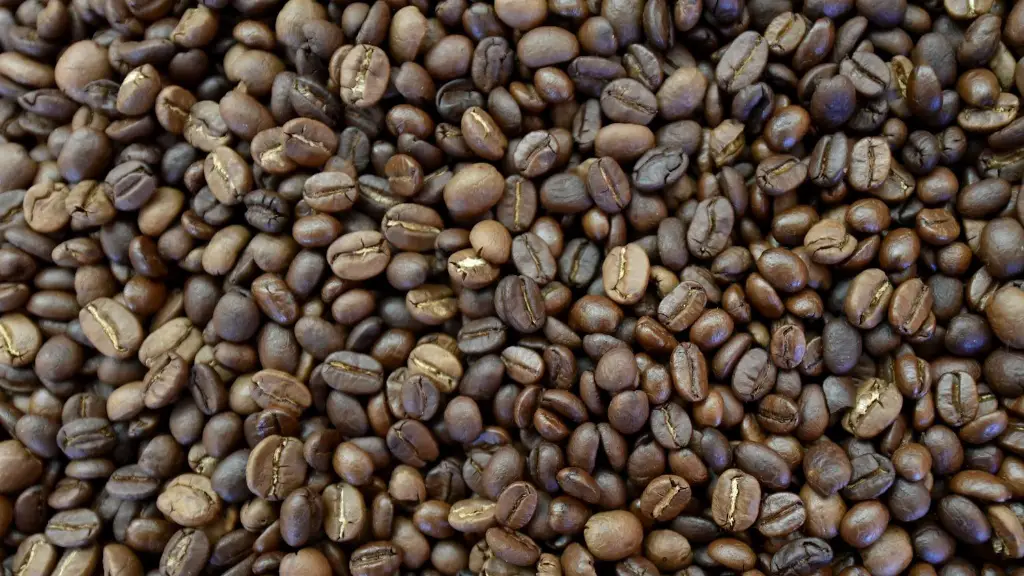Coffee and energy drinks are two popular beverages that provide us with a boost of energy. But which one is healthier? This article will compare the two beverages, analyzing their ingredients and health properties.
Coffee is made from roasted coffee beans, which contain compounds such as caffeine, antioxidants, and polyphenols. In comparison, energy drinks are composed of artificial ingredients such as caffeine, guarana extract, taurine and added sugars. Both beverages contain caffeine but coffee contains more antioxidants and polyphenols than energy drinks.
Both beverages can provide a quick boost of energy but it’s important to consider the potential health risks associated with each one. Coffee has been linked to a range of health benefits such as improved mental alertness and protection against certain diseases. Energy drinks have been linked to dehydration, insomnia, headaches, and palpitations.
In general, coffee is a healthier option than energy drinks because it contains fewer calories and sugar-free options are available. It also provides a range of health benefits that energy drinks do not offer.
Disadvantages of Coffee
Coffee has its disadvantages, especially when consumed in large quantities. Caffeine is a stimulant and can cause an elevation in heart rate, jitteriness, restlessness and anxiety. Too much caffeine can also cause dehydration, headaches, and difficulty sleeping. Coffee can also stain teeth and contain unhealthy additives such as sugar or creamers. Coffee is also acidic and can irritate the stomach lining if consumed too often. Therefore, it may not be healthier than energy drinks.
Caffeine is addictive and can be difficult to quit once you are used to it. Withdrawal symptoms such as headaches and irritability may occur when stopping or reducing coffee consumption. Too much caffeine consumption may lead to increased tolerance, meaning more will need to be consumed in order to achieve the desired effects. In addition, coffee is not suitable for young children or pregnant women due to the potential health risks associated with overconsumption of caffeine.
Health Benefits of Energy Drinks
Energy drinks have become increasingly popular over the years, mainly due to their ability to give an immediate burst of energy. However, many people are unaware of the potential health benefits that these beverages have to offer. Energy drinks can provide a number of advantages when consumed in moderation, including increased alertness and improved cognitive function. They also contain essential vitamins and minerals such as B-complex vitamins and electrolytes. Furthermore, some energy drinks contain caffeine which can help boost metabolism and improve mental clarity.
In comparison to coffee, energy drinks are typically higher in sugar content and may not be as beneficial for overall health. However, moderate consumption of energy drinks can still provide many of the same benefits as coffee without the added sugar or calories. Therefore, it’s important to consider your individual needs when deciding what is best for you. Ultimately, both coffee and energy drinks can be part of a healthy lifestyle if consumed in moderation.
Risk Factors of Energy Drinks
Energy drinks are a popular beverage that can provide an energy boost, but they can also pose significant health risks. Consuming energy drinks can increase heart rate and blood pressure, leading to serious medical conditions such as heart palpitations and stroke. In addition, energy drinks often contain high levels of caffeine and other stimulants that can cause insomnia, anxiety, and excessive sweating. Furthermore, many energy drinks contain high amounts of sugar which can lead to diabetes and obesity. It is important to note that while coffee does contain caffeine, it usually contains significantly less than an energy drink. Therefore, coffee may be a healthier alternative for those who want an energy boost without the risk of potential side effects associated with energy drinks.
Caffeine Content in Coffee and Energy Drinks
Coffee and energy drinks are popular beverages that offer a boost of energy with varying levels of caffeine. Coffee typically has more caffeine than energy drinks, with an average of 95 mg per 8-ounce cup compared to 72 mg in a typical 8-ounce energy drink. However, the actual amount of caffeine can vary significantly depending on the brand and strength of the product. In addition, energy drinks often contain other ingredients such as sugar, vitamins, and herbs that may affect their overall nutritional value. It is important to consider both the amount of caffeine as well as other ingredients when making decisions about which beverage to consume.
Caffeine is considered safe for most people when consumed in moderation, but it can have some negative effects if consumed in large amounts. Too much caffeine can cause jitteriness, sleeplessness, headaches, and stomach upset. It is important to be mindful of your total daily intake from all sources including coffee and energy drinks. It is also a good idea to read labels carefully to understand exactly what is contained in each beverage before consuming it.
When it comes to choosing between coffee or an energy drink for a quick pick-me-up or sustained energy throughout the day, both can be good options depending on individual needs and preferences. Ultimately, it is important to consider your specific lifestyle and goals when determining which beverage might be better suited for you.
Sugar Content in Coffee and Energy Drinks
Coffee and energy drinks have become increasingly popular beverages due to their energizing effects, but how do they compare when it comes to sugar content? Coffee typically contains no added sugar, but adding milk or cream can add a significant amount of calories. On the other hand, energy drinks contain high levels of added sugars, with some brands containing up to 27 grams per can. This is equal to around six teaspoons of sugar per serving. Furthermore, energy drinks are often loaded with artificial sweeteners like sucralose and aspartame. While these sweeteners may reduce the overall calorie count, they can still be damaging to health if consumed in large quantities. In conclusion, coffee is generally a healthier option than energy drinks when it comes to sugar content.
Differences Between Coffee and Energy Drinks
Coffee and energy drinks are popular beverages for people looking for a quick pick-me-up. While they both contain caffeine, the two drinks differ in other ways. Coffee is made from brewed roasted coffee beans, while energy drinks are typically carbonated and contain added sugars, artificial flavors and colors, as well as vitamins and minerals.
Coffee generally contains less caffeine than energy drinks. A cup of coffee contains around 95 to 200 milligrams of caffeine, while energy drinks typically have between 50 to 300 milligrams. Additionally, the caffeine in coffee is absorbed more slowly than the caffeine in energy drinks. This means that the effects of coffee may last longer than those of energy drinks.
In terms of health benefits, coffee has been linked to numerous possible benefits like improved brain function, better mental health and lower risk of diseases like diabetes and cardiovascular disease. In comparison, energy drinks have not been researched as extensively but may provide a boost in physical performance due to the higher levels of caffeine.
When it comes to whether one drink is healthier than the other, there is no clear answer since both contain beneficial and potentially harmful ingredients depending on individual health needs. In general though, coffee is likely to be the healthier choice as it contains less sugar and fewer additives than many popular energy drinks.
The End
In conclusion, coffee has a lot of potential health benefits when consumed in moderation, while energy drinks are full of sugar and other unhealthful ingredients. Coffee is lower in sugar than energy drinks and contains beneficial antioxidants. Therefore, coffee may be a healthier option than energy drinks for those looking for an energy boost without risking their health. However, it is important to keep in mind that everyone has different needs and preferences.
Overall, the best way to decide whether coffee or energy drinks is better for one’s health is to consult with a qualified healthcare provider.




